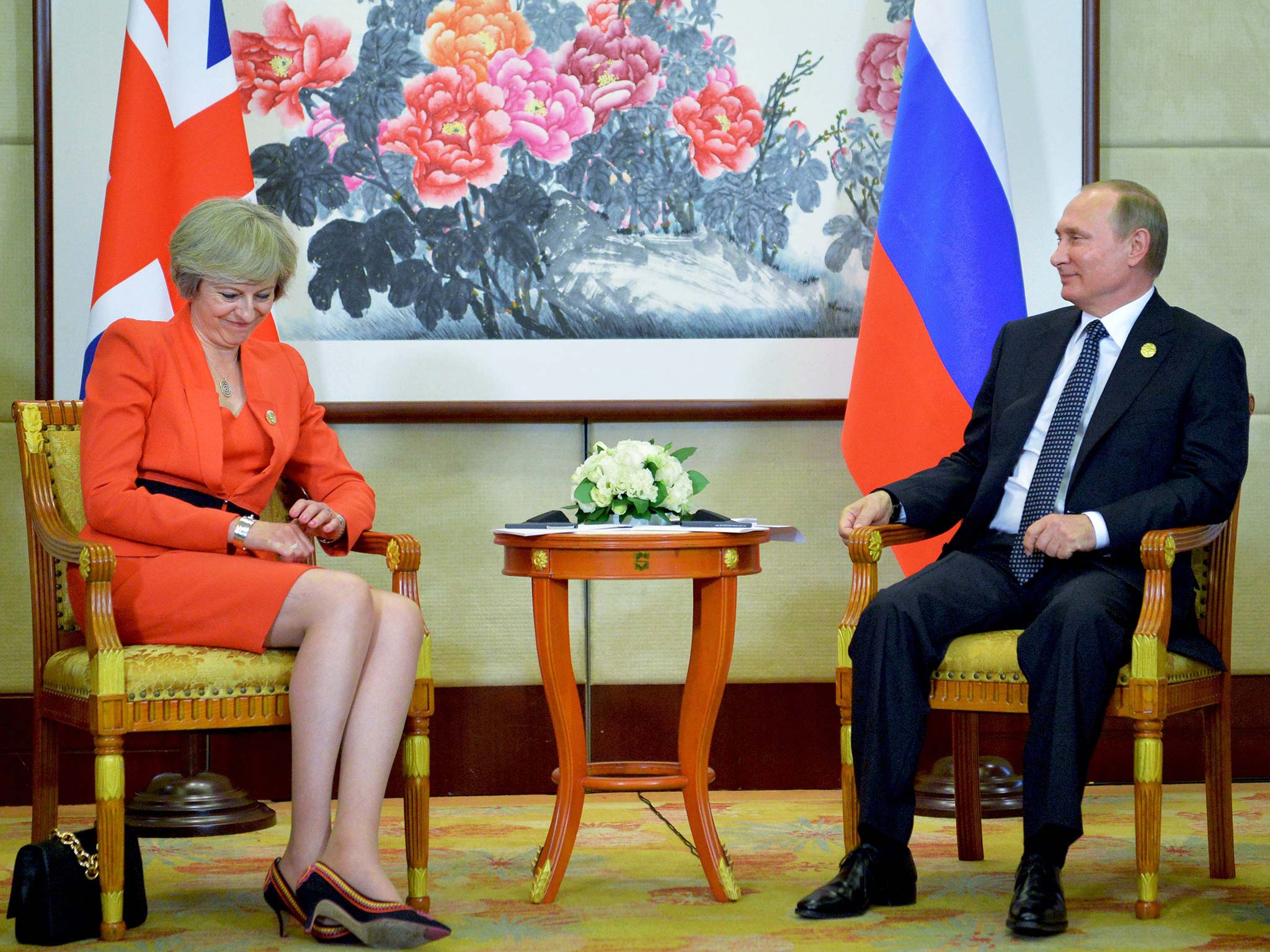This partnership is the best solution to Brexit – but it would have to include Russia
One of the many strategic failures of the EU leadership was the failure to include Russia. Had it done that instead of pressing on with closer integration of the core – and in particular creating the euro – the EU would be in much better shape now


Your support helps us to tell the story
From reproductive rights to climate change to Big Tech, The Independent is on the ground when the story is developing. Whether it's investigating the financials of Elon Musk's pro-Trump PAC or producing our latest documentary, 'The A Word', which shines a light on the American women fighting for reproductive rights, we know how important it is to parse out the facts from the messaging.
At such a critical moment in US history, we need reporters on the ground. Your donation allows us to keep sending journalists to speak to both sides of the story.
The Independent is trusted by Americans across the entire political spectrum. And unlike many other quality news outlets, we choose not to lock Americans out of our reporting and analysis with paywalls. We believe quality journalism should be available to everyone, paid for by those who can afford it.
Your support makes all the difference.What might a half-way house between being a member of the European Union and being an entirely independent country look like?
It is pretty clear that some sort of middle way will have to be found. That was always the case. But in the past few weeks it has also become clear that neither of the ready-made solutions, the UK becoming a member of the European Free Trade Association or the European Economic Area, would work very well. The existing half-way houses would suit neither us, nor indeed the EU. Those of us who thought they might do the job, at least for an interim period, were probably wrong, largely because neither would give the UK sufficient control over immigration. We will need a bespoke arrangement, and the trick will be to construct something that fits our needs but is also in the long-term self-interest of the EU.
The Bruegel Institute, a think-tank in Brussels, has just published a paper that I find the most convincing sketch yet of how this relationship might look. It argues that there should be “a new form of collaboration, a ‘Continental Partnership’, which is considerably less deep than EU membership but rather closer than a simple free-trade agreement”.
One thing that gives these ideas legs is the people who have written it. There are five authors, the Briton among them being Sir Paul Tucker, formerly deputy governor of the Bank of England. Others are Jean Pisani-Ferry, now commissioner-general of the French Prime Minister’s policy planning staff, Norbert Röttgen, chairman of the Bundestag's committee on foreign affairs, and André Sapir and Guntram Wolff, respectively senior fellow and director at Bruegel. This is not just a British wish-list; it has support at the highest levels in Paris and Berlin too.
The starting point is that neither the UK nor the EU would like to see their influence diminish as economic power shifts away from Europe and to a lesser extent North America, and towards the emerging nations. The UK wants some control over labour mobility, but has no interest in the decisions that the EU makes centrally over the heads of national governments. So the two sides of the partnership would take part in a common market in goods and services, and there would be free movement of capital and some freedom of movement in labour. There would also be a system where CP members, such as the UK, would be consulted before the EU took major decisions affecting any common rules – though the final decisions would be taken by the EU. The UK would abide by those common rules.
The result would be a Europe with an inner circle, the EU, with deep and political integration, and an outer circle with less integration. In the long run the outer circle could include Turkey, the Ukraine and others. My own view (not that of the authors’) is that such an outer circle should include Russia as soon as political events there make that a runner. One of the many strategic failures of the EU leadership was the failure to extend some kind of associate membership to Russia when the EU expanded eastwards. Had it done that instead of pressing on with closer integration of the core – and in particular creating the euro – the EU would be in much better shape now.
There are many objections in this Continental Partnership plan. One is that the UK would have to accept that it should pay in something to the EU. Another is that the EU would have to accept that the UK has a legitimate interest to be consulted on EU reform. But the argument that it is in the self-interest of both sides to create a new political structure that reflects the reality of the relationship is most compelling. There would have to have been changes anyway, as Bruegel noted in an earlier paper, as the Eurozone integrated further and the UK remained outside.
We will have to see whether these ideas get legs. There is a danger this will become a “bad divorce”, with Britain seeking to disengage from Europe as swiftly as possible and Europe seeking to punish it for breaking up what it thought was an OK marriage. My own feeling is something like this makes huge sense – though I would call it a European Partnership, rather than a Continental one. Sounds better, doesn’t it? We become members of the EP rather than the EU.
If you would like to read the initial proposal for the ‘continental partnership’ it appears here
Join our commenting forum
Join thought-provoking conversations, follow other Independent readers and see their replies
Comments